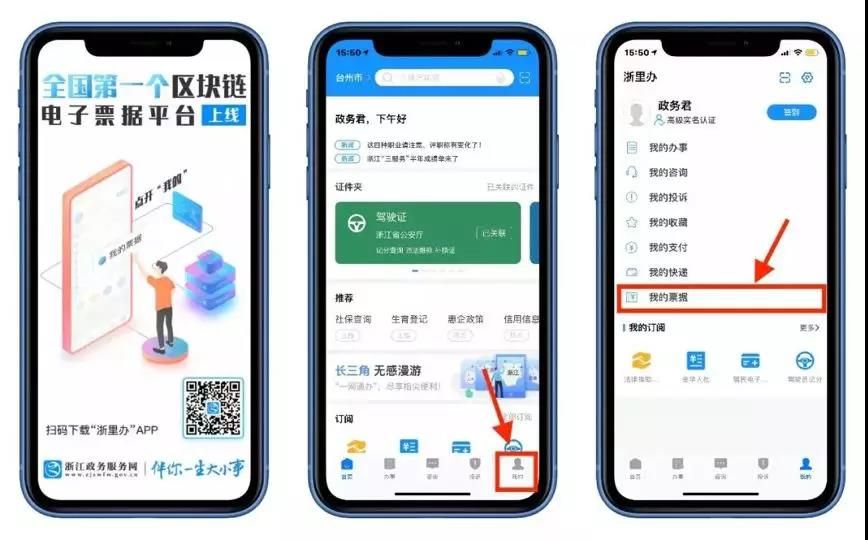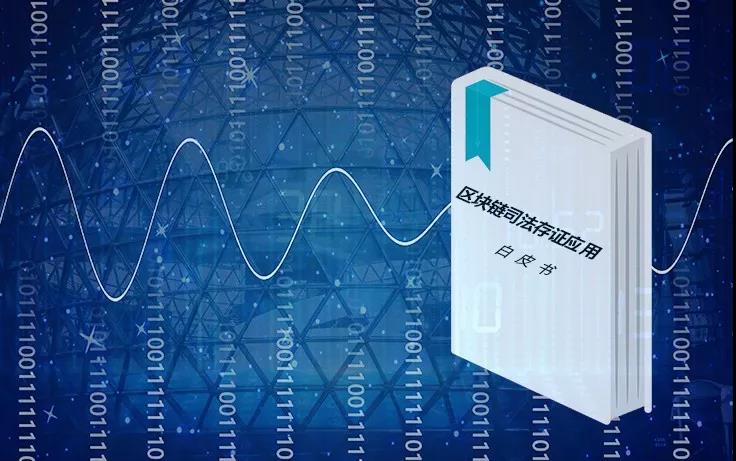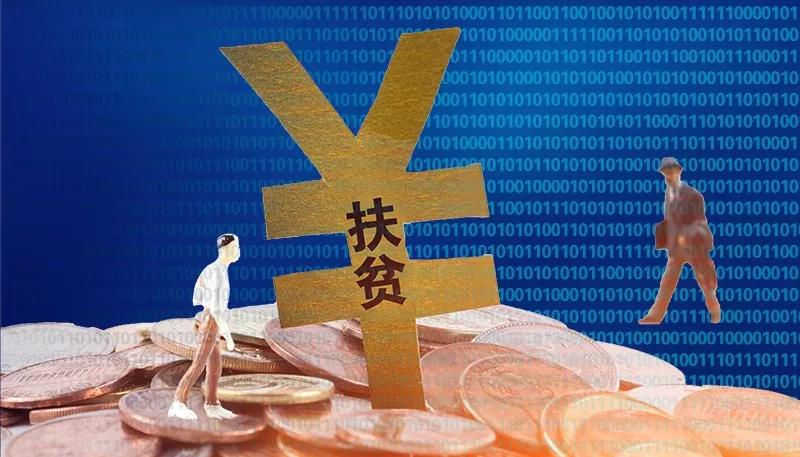Invoices, justice, poverty alleviation, government applications have become the blockchain to take the lead in the field?
In China, where is the area where the blockchain first landed?
What many people have unexpectedly is that government affairs may be one of them.
From invoices and electronic bills to judicial deposits and public welfare poverty alleviation, blockchain technology has blossomed here.
Building trust is the key to the landing of many blockchain government products. The blockchain is one of the key technologies to shape trust at low cost.
- Want to put Bitcoin and Ethereum into foreign exchange reserves, Venezuela has finally done a reliable thing?
- Notes | Multicoin essays sing empty anonymous coins, coins Ann released Defi research report
- Analysis | Differences in the four financing models of blockchain
The encounter between the two coincides with the time.
01 electronic bill
Blockchain + electronic bills is one of the important applications of blockchain technology in the field of government affairs, and it is also one of the earliest landing scenarios of blockchain technology in China.
In August 2018, Shenzhen opened the country's first blockchain invoice. The blockchain + invoices began to be accepted by people.
A year has passed, so far, Shenzhen has opened nearly 6 million blockchain electronic invoices, with a total invoice amount of 3.9 billion yuan.
The combination of blockchain and electronic invoices has greatly reduced the cost of tax collection and management, and has also enriched the taxation management methods, and will effectively combat the problem of tax evasion that is difficult to eradicate under the traditional electronic invoice model.
All along, China has adopted the tax collection and management model of “taking the ticket to control the tax”, which requires complicated technical means to ensure the uniqueness of the electronic invoice, which invisibly increases the social cost.
Under the premise of low cost, blockchain technology can realize the non-falsification, on-demand billing, full-time monitoring and data inquiry of electronic invoices, effectively solving the problem of invoice fraud, realizing the realization of the transaction, invoicing, invoicing and reimbursement. .
In response, the People’s Daily published a comment saying:
"The blockchain electronic invoices are on the line, no less than a taxation management perspective."
In September 2018, the old-fashioned tax-distribution enterprise aerospace information also announced the introduction of a blockchain-based electronic billing system.
Aerospace information uses blockchain technology to establish an electronic bill chain platform for tax bureau supervision, third-party service platforms and social organizations.
This platform links the data, flow, status and other information of electronic bills to achieve the locking of these information, so that the electronic bills are credible, verifiable and traceable, and solve the problem of supervision and use of electronic bills.
At the same time, in accordance with the agreement of the electronic bill chain, the participants of the platform jointly maintain the same electronic bill book in the process of using the electronic bill. This system unifies the relevant standards and service portals of electronic bills, which greatly facilitates the use of electronic bills by enterprises and institutions.
At present, the blockchain-based electronic bill system provided by Aerospace Information has been in good trial operation in Beijing, Shandong, Hubei, Anhui, Ningxia and other places, and the number of invoices and non-tax bills reached more than 300,000.
On the basis of the blockchain of ordinary invoices, the blockchaining of medical billing electronic bills has also begun to be implemented in Zhejiang.
The medical billing electronic bill details the details of all charges during the patient's medical visit. It not only has the function of tax return and reimbursement for invoices, but also can be used as medical and hospitalization vouchers in the areas of reimbursement, insurance claims, and medical disputes.
At the end of 2018, Zhejiang Province launched a blockchain electronic bill platform to let the doctors report farewell to the paper age.

"In the past, after the patient was treated, he would get a lot of paper invoices as a medical certificate." Hu Geping, chief of the Finance Department of Zhejiang People's Hospital, said in an interview with Zhejiang Daily.
Now, Zhejiang Electronic Billing Platform uses blockchain bills to “generate-transmit-use”. For patients who have been treated in different places in the province, people have not returned home, and all medical bills have been shared with the platform.
Compared with traditional paper bills, electronic bills will not be lost and can be checked at any time. In the future, commercial insurance will be further connected, and patients will submit claims online, which takes only a few minutes.
"At present, the electronic bills provided by the platform have already achieved some commercial insurance reimbursement and other use scenarios. In the future, this convenience service will be extended to the fields of sporadic reimbursement for medical insurance, reimbursement in different places, and even public payment and use scenarios such as education and public welfare." When the Zhejiang Daily interviewed, the relevant person in charge of the Zhejiang Provincial Department of Finance said.
In terms of data, since the first fiscal electronic bills were launched in Taizhou City Hospital in December 2018, nearly 600,000 medical electronic bills were sent to local patients in just two weeks.
As of the end of May 2019, Taizhou City had issued 14.29 million medical electronic bills based on blockchain.
At present, 11 comprehensive hospitals including Zhejiang People's Hospital, Zhejiang University First Hospital, Zhejiang University Shao Yifu Hospital, etc., have all joined the Zhejiang electronic bill platform.
From invoices to broader electronic bills, the blockchain is exploring more areas to try.
02 judicial deposit
Judicature is also one of the important areas in which blockchain administration has landed.
In September 2018, the Supreme People's Court stated in the latest judicial interpretation:
“Electronic data submitted by the parties can prove their authenticity through electronic signature, trusted time stamp, hash value verification, blockchain and other evidence collection, fixed and tamper-proof technical means or through electronic forensic evidence platform certification. The Internet court should confirm."
In June this year, the Information Center of the Supreme People's Court, the China Information and Communication Research Institute and the Shanghai Higher People's Court took the lead, and the White Paper on the Application of Judicial Deposits in Blockchain, jointly sponsored by many units such as Zhongjing Tianping and Tencent, was officially released.

This indicates that the use of blockchain technology for judicial deposit and the preservation of electronic evidence has gradually gained recognition from people's courts at all levels.
In June 2018, the Hangzhou Internet Court announced the conclusion of the first case of electronic evidence of blockchain. The plaintiff stored the hash of the electronic evidence in the blockchain, and this evidence was subsequently recognized by the court as “after the chain was 'save intact, not modified'”.
Nowadays, in the judicial world, the blockchain has been regarded as one of the tools to effectively enhance the credibility of electronic evidence with its multi-testing and non-tamperable attributes.
"Before the emergence of blockchain technology, most of the signature certificates used by the electronic contract industry were issued by a credible CA. When signing, it is necessary to identify the signatory subject through electronic signatures, time stamps, etc., to prevent contract tampering." Li Lin, the chief security officer of the contract SaaS platform, said to a blockchain.
However, after the emergence of blockchain technology, the entire life cycle of electronic data generation, collection, transmission and storage can be achieved by means of blockchain to achieve data security protection, that is, anti-tampering, modification of traces, etc., and the cost of electronic evidence preservation is greatly increased. reduce.
Today, blockchain has been widely used in data caving in IP cases. In the OpenLaw platform, the term “blockchain” was searched, and 76 of all 657 referee documents were related to intellectual property. Among the 76 cases, the majority of cases used blockchain technology as an evidence storage tool for intellectual property infringement cases.
The continuous advancement of the blockchain in the judicial field has also brought new challenges to blockchain practitioners. “The blockchain technical talents are mostly IT backgrounds, and there is not much understanding of legal work. Compound talents who are familiar with blockchain and legal work are extremely rare.” Li Lin pointed out, “But at the same time, the judicial business has complex logic and many scenes. The change and fault tolerance rate are low, which puts more demands on the blockchain practitioners."
Despite the long road ahead, the blockchain has been widely recognized by the industry as a depositary technology. In the "White Paper on the Application of Judicial Deposits in Blockchain" released in June this year, seven courts in Jilin, Shandong, Beijing, and Hangzhou have all launched their own blockchain electronic evidence platform.
The attitude of the courts at all levels to the blockchain deposit is as written in the judgment document of the Hangzhou Internet Court in the "first case" of the blockchain electronic evidence:
"For electronic data that is fixed by means of blockchain and other technical means, it should be subject to an open and neutral attitude for case analysis and identification. It is impossible to exclude or enhance the identification of technologies such as blockchains that belong to the current new and complex technical means. The standard cannot be lowered because the technology has the characteristics of being difficult to tamper with or delete."
03 widely landed
In addition to invoices, electronic bills, and judicial deposits, what are the landing scenarios in the area of big government affairs?
Poverty alleviation may be one of the earliest areas of blockchain administration.

As early as May 2017, the first “blockchain precision poverty alleviation” project supported by the government in China was launched in Hongyun Community, Guiyang City, Guizhou Province.
Net Record Technology, which provides technical support for the project, has established a set of “helping the work blockchain data storage system” for the project to accurately distribute poverty alleviation funds.
This system can record the identity information of poverty-stricken households, information on poverty alleviation and disability services, and information on poverty alleviation flows in the blockchain in the form of hash values to solve the problem of mutual trust between poverty alleviation agencies and poverty alleviation institutions.
In August 2018, with the support of the Guizhou Provincial Government, ICBC cooperated with Guizhou Guimin Group to successfully implement the first poverty alleviation fund through the cross-chain integration and information mutual trust of the bank financial service chain and the government's poverty alleviation fund administrative approval chain. 1.57 million yuan was issued in place.
With the transaction traceability and non-tamperable attributes of blockchain technology, the transparent use of the poverty alleviation funds, accurate delivery and efficient management problems are also solved.
At present, the Guizhou provincial government is gradually introducing information such as poverty alleviation households and social integrity into the system supported by the financial chain and the administrative chain, and greatly improving the management and use efficiency of poverty alleviation funds.
In addition to poverty alleviation, blockchain technology is also reshaping the philanthropy step by step.
In the philanthropy industry, trust has always been a major problem for all practitioners, donors and recipients. Donors and recipients are worried that the funds will be misappropriated; in order to shape trust, practitioners often pay a lot of money to make the utilization of charity low.
Blockchain technology, on the other hand, provides a solution that builds trust at a low cost.
With the help of blockchain technology, every donation can be disclosed to the public and tracked. Donors can track whether their donation funds are being used through the blockchain platform.
At present, there are cases in the blockchain technology in the field of charity. Ant giants, Jingdong, Tencent and other technology giants have layouts in this field.
In July 2016, Ant Financial Co., Ltd. developed the first blockchain public welfare application – “Rehabilitation of Children with Hearing Impairment”.
Every donation in the project can be fully tracked, and donors can check the fundraising situation and the use of funds at any time on the ant blockchain public interest platform.
In addition, the non-tamperable nature of the blockchain is inherently suitable for the credit industry. The participants in the credit reporting industry, including credit reporting agencies, can also act as nodes in the alliance chain.
In June 2018, Suning Bank exposed its self-developed blockchain blacklist sharing platform. On this platform, various financial institutions can encrypt their own blacklist data in the blockchain and realize joint prevention and control of fraud risks.
Compared with the traditional credit information products, this platform realizes the blacklist encryption and encryption storage, and the operation steps are transparent and traceable, and can reach the second level.
In addition, Suning Bank also said that the platform data has been connected to the domestic letter of credit information transmission system. The latter is also based on blockchain technology. According to public information, this system is based on the deep customization of the super-book open source project, and was jointly established by CITIC Bank and Minsheng Bank. It was launched as early as 2017.
On the same day that the domestic letter of credit information transmission system was launched, it completed a domestic letter of credit business of RMB 100 million. At the end of 2018, Suning Bank also announced that its blockchain blacklist sharing platform has been accessed by seven financial institutions and has 5.4 million blacklist data.
Conclusion
From invoices and electronic bills to judicial deposits and public welfare poverty alleviation, the application of blockchain in the field of big government affairs has gradually landed.
Technology advancement, policy guidance, and these positive explorations also show the broad prospects of blockchain applications.
This article is an original manuscript.
Source: a blockchain
Unauthorized, may not be reproduced!
We will continue to update Blocking; if you have any questions or suggestions, please contact us!
Was this article helpful?
93 out of 132 found this helpful
Related articles
- Interview with Gavin Wood: IPO can effectively constrain blockchain fraud
- Planning and Progress of Ethereum 2.0 | Vitalik Live Profile
- Bitcoin Core developer officially released Erlay BIP, Bitcoin is further upgraded from heavyweight
- Xiao Feng's latest speech: If it is just a "+ blockchain", you will be abandoned by the times.
- 2.0 is about to set sail. Will Ethereum turn to PoS to be an ETC counterattack?
- Facebook releases new version of LibraBFT protocol to reduce network complexity
- The Fold App is financing $2.5 million, and users can use BTC to buy clothes or pizza while earning BTC






